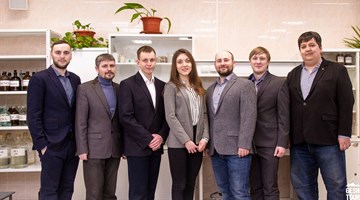© РИА Томск. Павел Стефанский
TOMSK, Jan 11 – RIA Tomsk. Tomsk State University (TSU) employee Venera Luchsheva is developing a
new composite ceramic antibacterial biomaterial for joint endoprosthetics; the
research is being conducted within the framework of the UMNIK support program,
the TSU press service said on Tuesday.
"A new antibacterial biomaterial
for implants will be developed at TSU. A junior researcher at the Laboratory of
Nanotechnology Metallurgy, Venera Luchsheva, is developing a new composite
ceramic biomaterial with an antibacterial effect... The work is supported by
the UMNIK program," the report said.
It is specified that Luchsheva proposes
to "inhabit" the surface of porous zirconium dioxide with a system of
bambusuril and antibiotic. The bambusuril molecule would release the antibiotic
and slowly kill the bacteria.
With reference to Luchsheva, it is added
that currently, antibiotics or other antibacterial substances are deposited on
the surface of the bone implant, but they cause antibiotic resistance and may
have a negative impact on the body's cells. A new implant material aims to
solve this problem.
© сайт Томского государственного университета
"The demand for joint
endoprosthetics in Russia is about 300,000 operations a year. When ceramic
materials are implanted... there can be inflammatory processes: malignant
neoplasms of bone tissue, osteolysis, ectopic growth of bone tissue, implant
rejection and associated bacterial infections," the press service quotes
the scientist.
Bambusurils are macrocyclic compounds
that were synthesized for the first time in 2010.
UMNIK is one of the leading programs in
Russia to support commercially oriented work of students and young scientists.
Participants receive half a million rubles to implement their projects over two
years. The program is funded by the Foundation for Assistance to Small Innovative
Enterprises (FASIE).